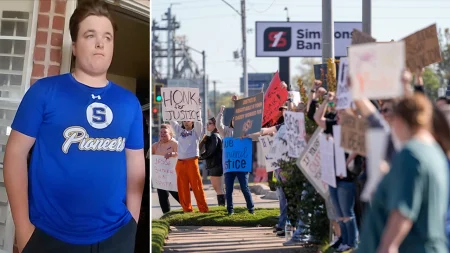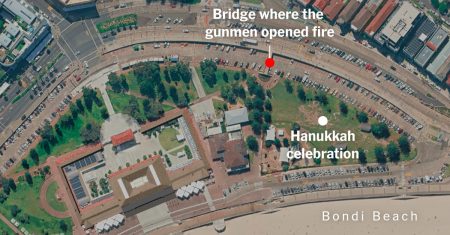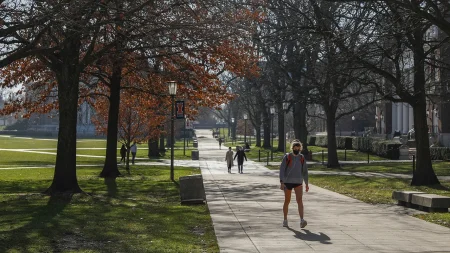Marine Veteran’s Life Cut Short: Three Teens Arrested in Tragic Rideshare Killing
In a heartbreaking turn of events that has shaken the Houston community, three teenage boys have been arrested in connection with the killing of 28-year-old Quoc “Jake” Nguyen, a Marine veteran who had been working as a rideshare driver to support his family. Harris County Sheriff Ed Gonzalez announced the arrests on Thursday, bringing some measure of justice to a case that has highlighted both the vulnerability of gig workers and the disturbing trend of youth violence in America. The young Marine veteran was found dead along a roadside on September 4 after being shot, his vehicle and belongings stolen in what appears to have been a planned robbery. The three boys charged in the killing—aged just 15, 14, and 13—now face serious consequences for their alleged actions, with the oldest charged with capital murder and the two younger teens facing charges of tampering with evidence. The arrests mark a somber milestone in a case that has left a family devastated and a community questioning how such young people could commit such a violent act.
Jake Nguyen’s story is one of sacrifice and family dedication cut tragically short. After serving his country as a Marine, Nguyen had turned to driving for Uber to help support his mother and sister. The Nguyen family had immigrated to Houston from Vietnam several years ago, embodying the American dream of building a better life through hard work and determination. According to his brother Matthew, Jake had picked up a customer and dropped them off downtown before the incident occurred. “He still had some people in the car,” Matthew explained, noting that Uber confirmed this was the last activity they recorded from Jake’s account. The poignancy of Matthew’s words—”I had just spoken to him on Tuesday, and he sounded like he finally figured some stuff out”—underscores the cruel timing of this loss, coming just as Jake seemed to be finding his path forward. This personal tragedy has resonated deeply with the community, highlighting the human cost behind the crime statistics.
The investigation revealed that the teenagers allegedly shot Nguyen before stealing his vehicle and personal belongings. While authorities have not released specific details about how the teens encountered Nguyen or what might have motivated such extreme violence, the case raises serious questions about youth violence and access to weapons. Sheriff Gonzalez described the killing as “tragic and senseless” in a social media post announcing the arrests, extending condolences to Jake’s friends and family while commending the Harris County Sheriff’s Office detectives and team members involved in solving the case. The swift action in apprehending the suspects demonstrates the seriousness with which local authorities treated this crime, though it provides little comfort to a family now left to navigate profound grief and loss.
The impact of this crime extends far beyond the Nguyen family, touching on several troubling social issues. The vulnerability of rideshare drivers, who often work late hours and pick up strangers with minimal security protections, has become increasingly concerning as these services have expanded. Jake’s death adds to a growing list of incidents involving attacks on rideshare drivers, prompting calls for enhanced safety measures from companies like Uber and Lyft. Additionally, the ages of the alleged perpetrators—13, 14, and 15—have sparked community conversations about juvenile crime, access to firearms, and the factors that might lead teenagers to commit such serious offenses. The case sits at an uncomfortable intersection of immigration stories, veteran experiences, the gig economy, and youth violence—all complex issues that defy simple solutions.
For the Nguyen family, the arrests represent just one step in a long journey of grief and healing. Having immigrated from Vietnam in search of better opportunities, they now face the devastating reality of losing a son and brother who had already given much to his adopted country through his military service. Matthew Nguyen’s account of his last conversation with his brother—where Jake seemed to be finding direction and purpose—makes the loss all the more painful to bear. The family now faces not only emotional devastation but also the practical challenges of losing a primary breadwinner who had been supporting his mother and sister. As they prepare to navigate the juvenile justice system and eventual trials, they must also find ways to rebuild their lives without Jake’s presence, strength, and financial support.
Sheriff Gonzalez’s commendation of the detective work that led to these arrests highlights the dedication of law enforcement in pursuing justice for Jake Nguyen. The case required careful investigation to identify and apprehend the teenage suspects, work that was complicated by both the ages of the alleged perpetrators and the seemingly random nature of the crime. While the arrests provide some measure of closure, they also open a new chapter of legal proceedings that will likely take months or years to resolve. As the community processes this tragedy, many are left wondering what could have been done to prevent it—whether through rideshare safety protocols, intervention programs for at-risk youth, or other preventative measures. Jake Nguyen’s death, described by Sheriff Gonzalez as “tragic and senseless,” serves as a somber reminder of lives cut short by violence and the ripple effects that extend far beyond the immediate victims to touch families, communities, and society as a whole. In honoring Jake’s memory—his service as a Marine, his dedication to his family, and his hard work as he built a life in America—perhaps there lies an opportunity for meaningful reflection and change.











